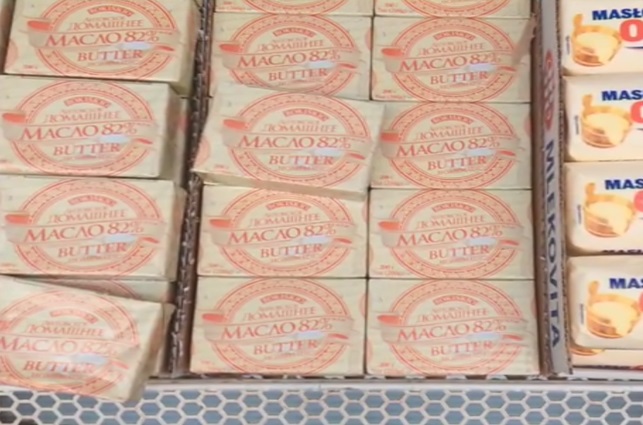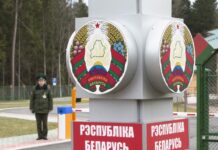
LRT.lt asks why is Lithuanian butter sold in Canada with Russian labels? The economy and politics of product labelling make some Lithuanians uncomfortable. A photo posted on Facebook has been making rounds and inspiring discussion: packets of Lithuanian butter with Russian labels sold in a shop in Canada.
Rokiškio Sūris, the manufacturer of the product, says that Canada has a sizeable Russian community that is the main market for the butter. “People are used to buying such products, they communicate in Russian, and we label them in Russian in accordance with their wishes,” Dalius Trumpa, CEO of Rokiškio Sūris, told LRT TV.
Labelling products in Russian does not violate any Lithuanian legislation. Still, Economy Minister Aušrinė Armonaitė thinks the choice is “strange”. “Some of these goods were probably labelled with the idea of shipping them to Russia, but are now destined for other markets,” she said. “On the other hand, if it is done on purpose, I would not do it because the choice seems strange. But there is no legislation that restricts it, especially when it comes to foreign markets.”
Trumpa insists that Rokiškio Sūris has been supporting Ukraine since the start of the Russian invasion, sending its products there. Meanwhile, the company has not had any business with Russia since 2014. Still, Trumpa says, there are no plans to change the labelling of products intended for Russian-speaking buyers.
“I am of the opinion that we are not at war with the Russian language,” he said. “Putting English labels would not bring us any new buyers in Canada, but could cost us the existing ones, which are few as it is.”
Petras Čepkauskas, head of the food section of the price-watching portal Pricer.lt, says it is common for Lithuanian companies to target expat communities from former Soviet countries.
“Litovskoye moloko (Lithuanian milk in Russian) evokes emotions in these expats,” he told LRT TV, adding that manufacturers are exploiting the good reputation that Baltic food products used to have in the Soviet Union. According to Čepkauskas, Lithuanian goods with Russian labels, made by multiple manufacturers, can also be found in shops in the US and Germany.





























